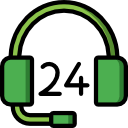BIOLOGY 102 Medical-Surgical Nursing Critical Thinking in Client Care, 4th Edition CHAPTER 22
- From Biology, General Biology

- PURITY
- Rating : 0
- Grade : No Rating
- Questions : 0
- Solutions : 503
- Blog : 0
- Earned : $343.00

Medical-Surgical Nursing Critical Thinking in Client Care, 4th Edition Priscilla LeMon
CHAPTER 22
Chapter 22
1. The nurse is caring for a teen who is hospitalized with a diagnosis of anorexia nervosa. When developing the plan of care for the client, which of the following should be included?
1. Serve the client three balanced meals per day.
2. Observe the client’s activities for 15 minutes after eating.
3. Discuss weight-gain needs with the client.
4. Provide a variety of cold or room-temperature foods.
2. During a routine physical examination, a client is found to be above the recommended weight for her height. Her body mass index is 33 kg/m2. When the nurse attempts to discuss the need to make dietary changes, the client states, “Why should I lose weight? I feel great.” What response by the nurse is indicated?
1. “That is a wonderful attitude to have.”
2. “Let me know if you change your mind.”
3. “Making changes now will help you to maintain your health.”
4. “You weigh more than is recommended.”
3. A nurse is planning an in-service geared toward young African-American women regarding nutrition. Which of the following concepts related to body image concerning this cultural group should the nurse be aware of when preparing the program?
1. A thin physique for women is embraced by this culture.
2. The culture has traditionally valued curvaceous women.
3. Activity is frequently integrated into most lifestyles.
4. There are few differences between the African-American–held images of attractiveness and those held by Caucasians.
4. An obese client has voiced an interest in taking the appetite suppressant phentemine to assist in a weight loss program. Based upon your knowledge, which of the following factors in the client’s health history might restrict the client’s ability to take the medication?
1. History of insomnia
2. A family history of thrombophlebitis
3. A body mass index of 31 kg/m2
4. Frequent use of alcohol
4. After following a structured diet, a client finds that his blood glucose levels have decreased and oral medications are no longer needed. The client is curious about how this is possible. What information should be provided to the client?
1. Less body mass means less insulin is needed to maintain constant glucose levels.
2. Body mass reduces cellular resistance to insulin.
3. Reduced dietary intake of carbohydrates is responsible for the weight loss.
4. Reduced dietary intake results in a reduced need for insulin.
5. When developing the plan of care for the client with anorexia nervosa, which of the following will be the nursing diagnosis with the highest priority?
1. Nutrition, Imbalanced, Less than Body Requirements
2. Self-Esteem, Chronic Low
3. Powerlessness
4. Body Image, Disturbed
6. When taking the health history of a client, it is revealed that the client often eats excessive amounts of food when not hungry. When questioned, the client reported this often takes place when he feels alone, and afterward, there are intense feelings of self-disgust. The client denies purging after these episodes. Based upon your knowledge, which of the following is a potential complication of continued activities of this nature?
1. Type 2 diabetes mellitus
2. Type 1 diabetes mellitus
3. Dehydration
4. Electrolyte imbalances
COGNITIVE LEVEL: Analysis
7. The mother of a teen contacts the clinic with concerns about her daughter’s nutritional status. She reports her daughter has been extremely concerned with losing weight over the past six months. She indicates her daughter has been weighing herself several times daily and at times eating huge meals. When further questioned, she indicates her daughter has not lost or gained much weight. The mother wonders aloud if her daughter has anorexia nervosa. Based upon your knowledge, which of the following statements best describes your belief about the client?
1. The client is demonstrating behaviors consistent with early-onset anorexia nervosa.
2. The client is demonstrating behaviors consistent with binge-eating disorder.
3. The client is demonstrating behaviors consistent with bulimia nervosa.
4. The client is demonstrating behaviors consistent with a metabolic disorder.
8. When providing education to a client regarding use orlistat (Xenical), which of the following statements by the client indicates the need for additional teaching?
1. “I will need to take supplements of vitamins A, D, E, and K daily.”
2. “A low-calorie diet will need to be followed.”
3. “I should take this medication 30 minutes before eating.”
4. “This medication will reduce the amount of fat my body absorbs.”
9. The client planning to undergo bariatric surgery is discussing postoperative care with the nurse. Which of the following statements indicates the client understands the plan of care?
1. “I will need to take daily vitamin and mineral supplements.”
2. “I will initially take in only liquids, such as grape juice.”
3. “The foods I am allowed to eat gradually will be increased.”
4. “Maintaining protein intake will be a priority in my recovery diet.”
10. When working with a client who is attempting to lose weight, which of the following suggestions might assist the client in being compliant with the prescribed diet?
1. Eat alone to reduce outside distractions.
2. Drink water or a diet beverage after eating to promote feelings of fullness.
3. Allow at least 45 minutes to 1 hour to promote full enjoyment of a meal.
4. Set aside small nonfood rewards when you meet a goal.
11. The client is planning to start a diet. The client questions the best balance for the diet. What information should be provided to the client?
1. The diet should be between 750 and 1,000 calories per day, with less than 15% of the total calories coming from fat.
2. The diet should simply cut 500 calories per day from the normal intake.
3. The diet should reduce calories to 1,000–1,500 per day, with less than 15% of the total calories coming from fat.
4. The best diet will be between 1,250 and 1,500 calories per day, with 15% of the calories being sources of protein.
12. The client voices an interest in a very low–calorie diet (VLCD) for rapid weight reduction. The client is concerned about the safety of this diet. What information should be provided to the client?
1. VLCDs are relatively safe diet plans.
2. VLCDs result in significant losses of muscle mass in response to the protein restriction.
3. VLCDs are considered safe and acceptable alternatives for clients who have a lower body mass index and need to lose a small amount of weight rapidly.
4. VLCDs are safest for middle-aged and senior clients.
13. A client reports she is concerned about her body weight. She asks if she is obese. Your assessment reveals the client is 5’5’’ and weighs 144 pounds. What information should be provided to the client?
1. “Yes, you are slightly obese for your height and weight.”
2. “You are normal for your height and weight.”
3. “You are slightly overweight.”
4. “You are moderately obese.”
[Solved] BIOLOGY 102 Medical-Surgical Nursing Critical Thinking in Client Care, 4th Edition CHAPTER 22
- This solution is not purchased yet.
- Submitted On 12 Apr, 2020 05:15:39

- PURITY
- Rating : 0
- Grade : No Rating
- Questions : 0
- Solutions : 503
- Blog : 0
- Earned : $343.00


I need quiz 2 and 3 biology 101 liberty university

BIOLOGY 12TH EDITION RAVEN TEST BANK very well elaborated 2023 updated

BIOLOGY 123A 06_2015_Fiks_Shared Decision_RCT_25755233.pdf

BIOLOGY 101 GIZMO Virus Lytic Cycle Student Exploration Sheet GRADED A+

BIOLOGY 151 A&P 1 final Exam Portage Learning Latest
The benefits of buying study notes from CourseMerits

Assurance Of Timely Delivery
We value your patience, and to ensure you always receive your homework help within the promised time, our dedicated team of tutors begins their work as soon as the request arrives.
Best Price In The Market
All the services that are available on our page cost only a nominal amount of money. In fact, the prices are lower than the industry standards. You can always expect value for money from us.


